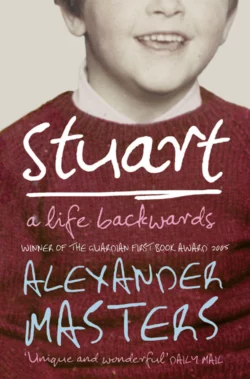Stuart: A Life Backwards

Alexander Masters
Тип: электронная книга
Жанр: Биографии и мемуары
Язык: на английском языке
Стоимость: 619.22 ₽
Статус: В продаже
Издательство: HarperCollins
Дата публикации: 16.04.2024
Отзывы: Пока нет Добавить отзыв
О книге: A major launch for the paperback edition of the most original, capitvating and award-winning memoir of the year.Stuart, A Life Backwards, is the story of a remarkable friendship between a reclusive writer and illustrator (‘a middle class scum ponce, if you want to be honest about it, Alexander) and a chaotic, knife-wielding beggar whom he gets to know during a campaign to release two charity workers from prison.Interwoven into this is Stuart’s confession: the story of his life, told backwards. With humour, compassion (and exasperation) Masters slowly works back through post-office heists, prison riots and the exact day Stuart discovered violence, to unfold the reasons why he changed from a happy-go-lucky little boy into a polydrug-addicted-alcoholic Jekyll and Hyde personality, with a fondness for what he called ‘little strips of silver’ (knives to you and me).Funny, despairing, brilliantly written and full of surprises: this is the most original and moving biography of recent years.